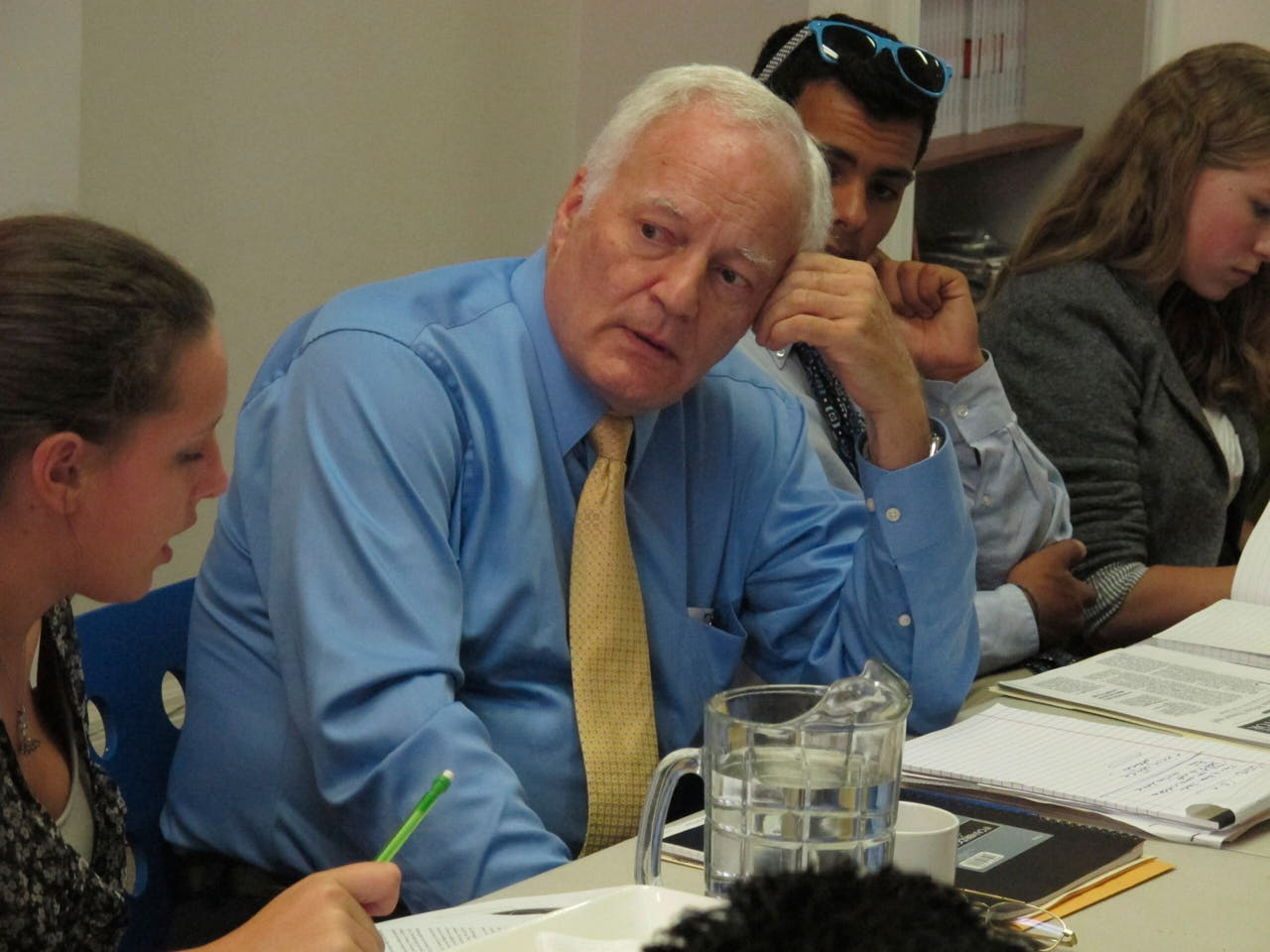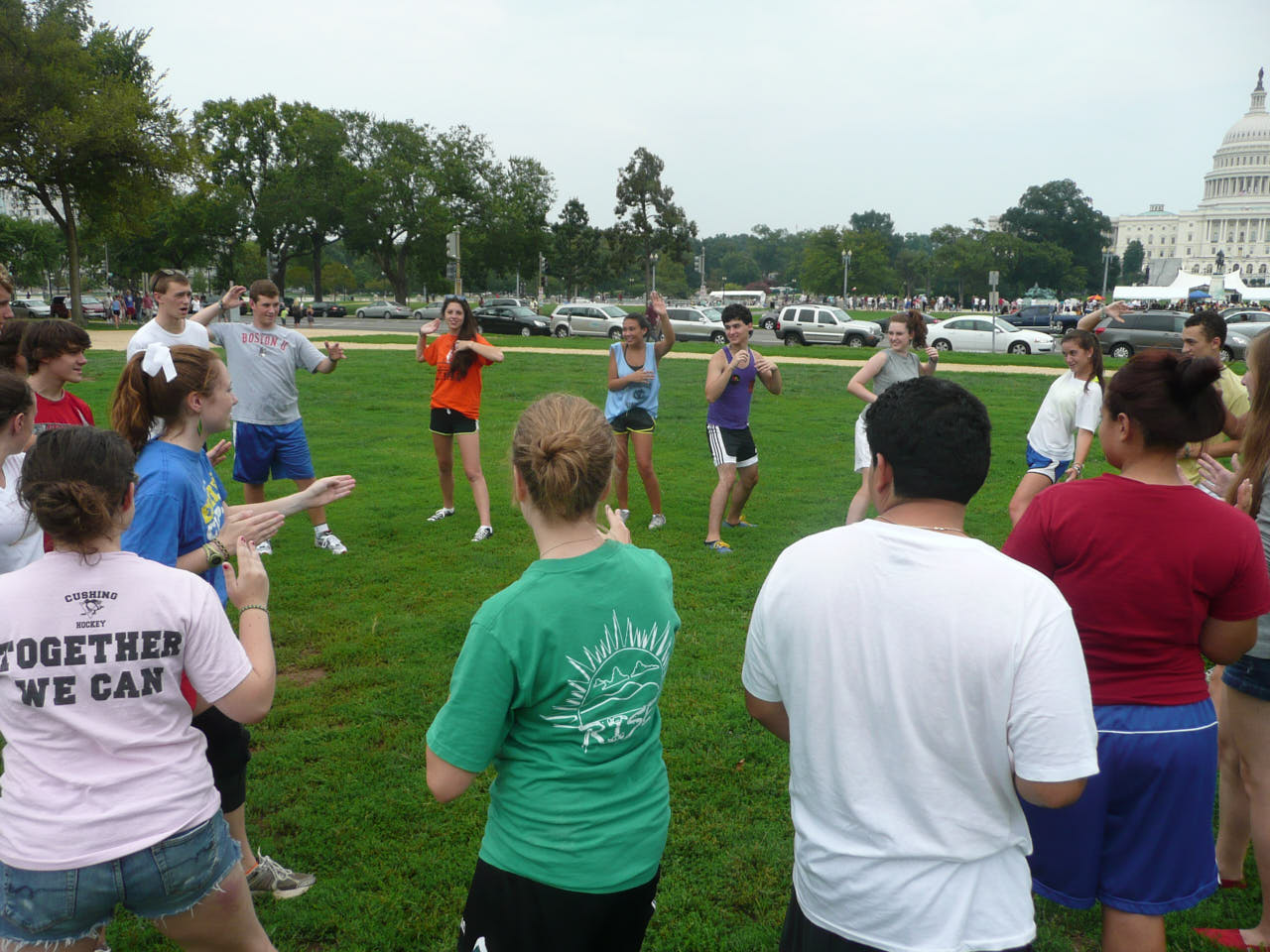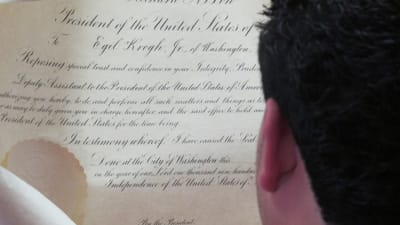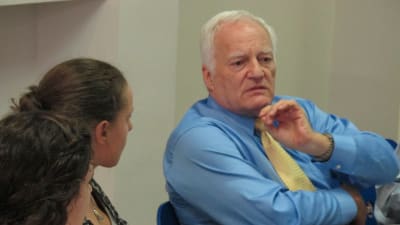Bud Krogh, Linda Jamison visit SEGL
Our first week is complete, and it is hard to imagine a more promising start to our Fall 2011 semester.
On Wednesday, we continued our introduction to ethics by meeting with two leading ethics practitioners, each of whom faced high-level ethical dilemmas in Presidential administrations. Both conversations took place at the Center for the Study of the Presidency and Congress, a leading DC think tank just blocks from our Academic building.

Our first speaker, Egil “Bud” Krogh is well-known to American historians as the Director of Nixon’s notorious Watergate-era “Plumbers.” When the President told him the Pentagon Papers leak was a high national security priority, Bud authorized a covert break-in at the offices of Dr. Lewis Fielding. Dr. Fielding had provided psychological counseling to Daniel Ellsburg, who had released the Pentagon Papers, and Krogh was hoping to find information that might discredit Ellsburg. Eventually, Krogh pled guilty to violating the civil rights of another citizen–he was one of the only Watergate-era officials to do so–and spent time in jail.
Why did he choose to authorize the break-in? Many observers think this was not only a poor ethical choice, but a choice that ultimately led to the downfall of the Nixon Administration. Krogh’s answer starts with the day Elvis visited the White House, continues with questions about the fat content in hot dogs and a racist Supreme Court nominee, and ultimately ends with “The Integrity Zone,” a visual representation that he now uses to guide his decision making. Students received these stories with rapt attention; many of the lessons about peer pressure, groupthink, and wanting to please authority figures resonate with all of us. Many of them noted Krogh’s candor in answering difficult questions from students.

After a short break, Linda Jamison led a new discussion. Linda was Special Assistant to the President until this summer, handling all of the national security political appointments in the Obama Administration. After giving some background into the way government officials are hired (political appointees, civil service, foreign service, etc.), she discussed the ethical system she helped create to vet potential appointees (many students were surprised to learn that Facebook pages are part of the process!), and explained some of the dilemmas that she faced while working for the President (for example, old friends asking for favors). One particular compelling case: would you hire a highly qualified woman for a key position at the Department of Defense if 15 years ago she was a man? Linda’s answer was “yes,” and Amanda Simpson became the first openly transgender woman to serve in any Presidential administration.
On Friday, Bud Krogh returned for a special Master Class to help students put their new-found ethical thinking skills to the test. Prior to the class, students read a case study involving an American Indian takeover of the Bureau of Indian Affairs in 1972. (You can read the case study here.) Krogh, who managed the crisis for the Nixon Administration, walked students through the details of the case, and students argued for and against different options. (Would you storm the building? Would you remove the police from the scene and ask to negotiate?) After students proposed their answers, Krogh told them what actually happened. Not every student agreed with his choice, but the story was fascinating and instructive.

With the case study complete and warm pizza in their stomachs, the students spent much of Friday evening engaged in bonding activities designed to bring us closer together as a semester. (It is always a perk to do these activities literally in the shadow of the U.S. Capitol!)
Saturday morning’s English class also proved compelling. Students read two controversial articles, by Peter Singer (here) and Garrett Hardin (here); each makes a strong logical argument about assisting the poor. These readings not only give them articulate arguments about a key international issue; they also exemplify one point on Aristotle’s Rhetorical Triangle: logos. (We will study ethos and pathos later this week before authoring our first speeches, which will use all three techniques.) Following class, we played a rousing game of Capture the Flag, designed gourmet brownies in a Top Chef-style bake-off, ate turkey burgers with potatoes and fresh corn on the cob, and took a night-time tour of the Mall. Yes, everyone slept very well!
This week we begin our case study on the 1994 Rwandan genocide. We have three extraordinary speakers lined up and I look forward to sharing more about the week very soon.











